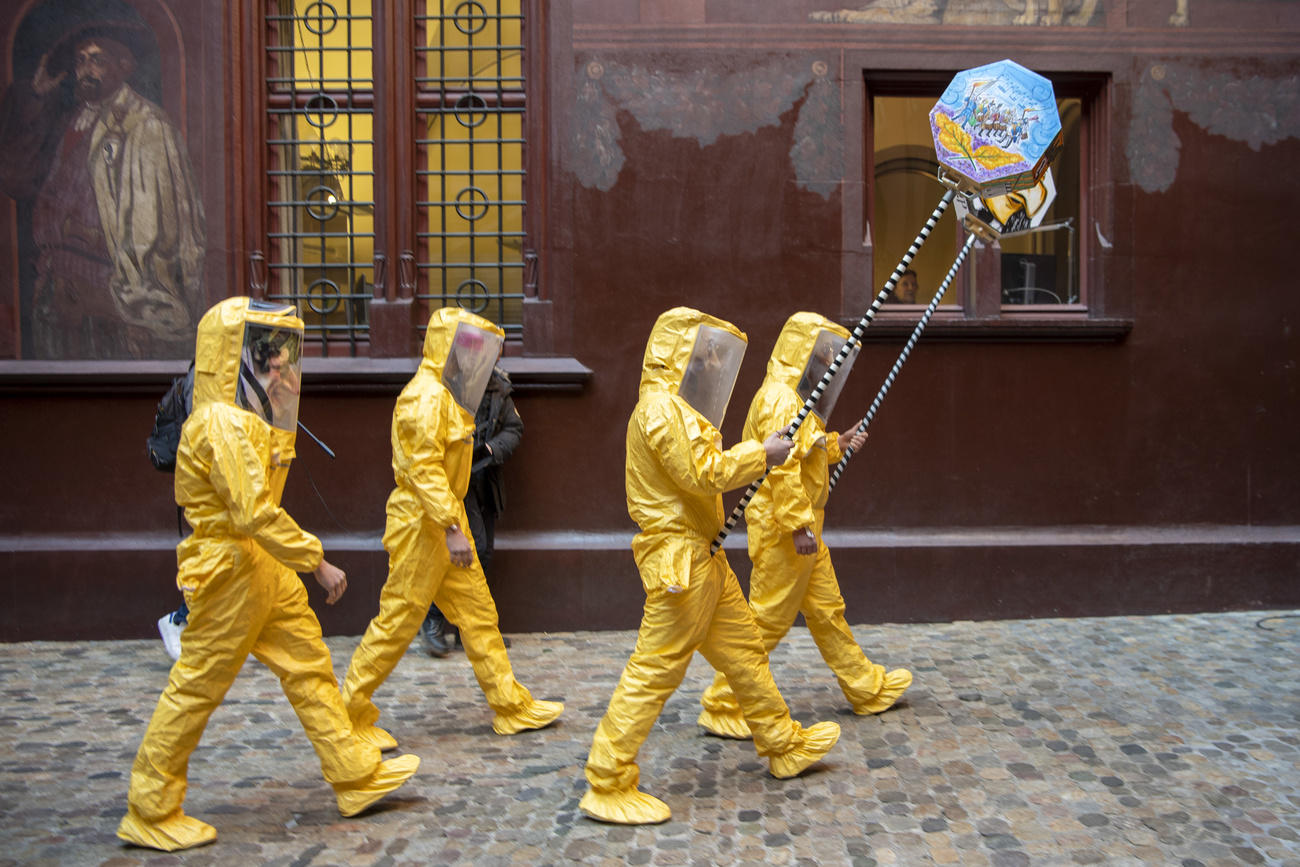
Swiss group calls for crisis fund to support cancelled events

A Swiss association of concert and festival organisers has slammed the government’s ban on public events of more than 1,000 people in response to the coronavirus threat. It wants the authorities to set up a crisis fund.
Last Friday, the Swiss government made the unprecedented move of taking over powers from cantonal authorities to ban gatherings of over 1,000 people, in order to contain the spread of the virus. The countrywide ban on public events is in place until at least March 15.
On Tuesday, the Swiss Association of Concert, Show and Festival Music Organizers (SMPA) declared External linkthat the decision was akin to a “professional ban” and demanded that the government establish a crisis fund to help provide financial compensation for cancelled events.

More
Coronavirus cases are spreading in Switzerland
The ban came into force with immediate effect in the midst of the carnival season which draws thousands of revellers to many Swiss towns and cities. It has also affected a long list of events, shows and conferences across the country, including the cancelled international motor show in GenevaExternal link and BaselworldExternal link watch fair.
Arbitrary and unconsidered
The association said in a statement that the consequences of the general ban, which affects individuals, organisations, suppliers and service providers, had not been properly considered.
The association, which represents 43 Swiss concert, show and festival organizers, said the limit of 1,000 was “arbitrary”. It criticized Switzerland for being the only country to take such drastic measures. France, for example, has set a 5,000 participant/guest limit.
+ An in-depth dossier on the coronavirus in Switzerland
It demands that events with fewer than 1,000 guests be allowed to go ahead “without disproportionate restrictions”. In addition, the rules must be applied in a uniform manner across all 26 cantons, it said. Some local governments, including canton Bern and the town of Chur in south-eastern Switzerland, have announced even stricter measures.
The association fears the long-term consequences if the ban is extended: “The Swiss events industry, like many Swiss artists, fears for its existence.”
The government, however, is not obliged to underwrite financial losses caused by the ban on major events; the principle of force majeure – unforeseeable event – applies.

More
Coronavirus: the situation in Switzerland

In compliance with the JTI standards
More: SWI swissinfo.ch certified by the Journalism Trust Initiative






























You can find an overview of ongoing debates with our journalists here . Please join us!
If you want to start a conversation about a topic raised in this article or want to report factual errors, email us at english@swissinfo.ch.